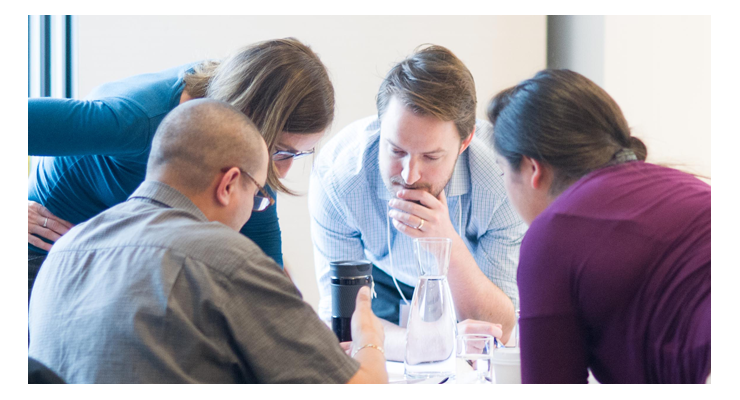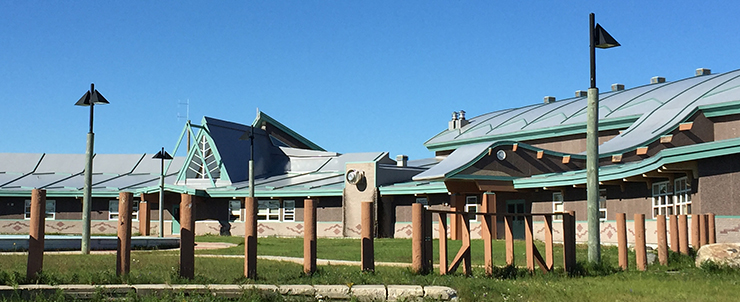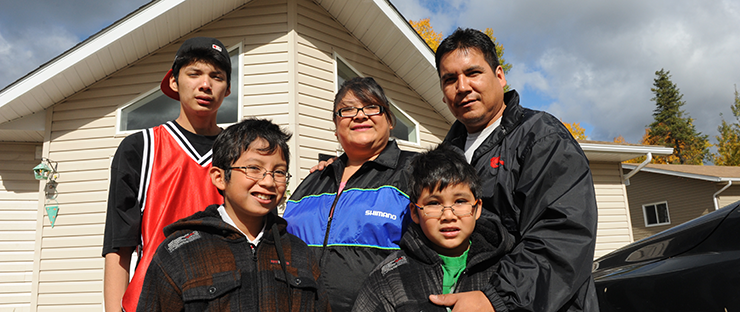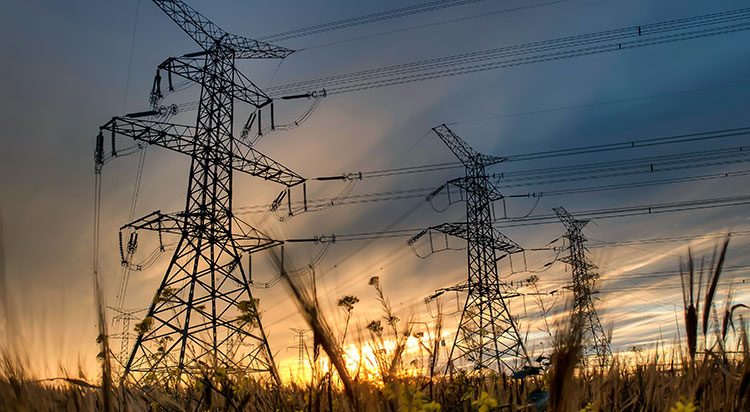Legacy Energy Support Programs
Since 2009, the IESO has supported Indigenous Communities / Organizations across Ontario.
The four legacy support programs are:
Community Energy Champion Program
The Community Energy Champion (CEC) Program provided funding support to First Nation and Metis communities and organizations to hire a designated community energy champion to help plan, implement, and evaluate energy-related priorities.

Please be sure to open all PDFs in Adobe. If using a Mac, avoid opening PDFs in Preview, as it can corrupt the files and result in information being lost.
3.3 - Program Documents and Resources
Program and Application Documents
Funding Documents *for successful applicants
- Funding Agreement Sample
- Request for Funding Report - First
- Request for Funding Report Salary - Subsequent
- Request for Funding Report Salary - Final
- Request for Funding Report - Expenses
3.2 - Program Documents and Resources
Program and Application Documents
Funding Documents *for successful applicants
- Request for Funding Report - First
- Request for Funding Report Salary - Subsequent
- Request for Funding Report Salary - Final
- Request for Funding Report - Expenses
3.1 - Program Documents and Resources
Program Documents
Funding Documents *for successful applicants
- Salary Stream:
- Expenses Stream:
3.0 - Program Documents and Resources
Program Documents
Funding Documents *for successful applicants
- Request for Funding Report - First
- Request for Funding Report - Subsequent
- Request for Funding Report - Final
2.0 - Program Documents and Resources
Program Documents
Funding Documents *for successful applicants
- Request for Funding Report - First
- Request for Funding Report - Subsequent
- Request for Funding Report - Final
- Timesheet
1.0 - Program Documents and Resources
Program Documents
Funding Documents *for successful applicants
Education and Capacity Building Program
The Education and Capacity Building (ECB) Program provided funding to support awareness, education, skills, and capacity building initiatives that helped prepare First Nation and Metis communities and organizations to fully leverage energy opportunities and contribute to cleaner, more reliable, and more affordable energy systems.

Please be sure to open all PDFs in Adobe. If using a Mac, avoid opening PDFs in Preview, as it can corrupt the files and result in information being lost.
9.3 - Program Documents and Resources
Program and Application Documents
Funding Documents *for successful applicants
- Funding Agreement Sample
- Request for Funding Report - First
- Request for Funding Report - Subsequent
- Request for Funding Report - Final
9.2 - Program Documents and Resources
Program Documents
Funding Documents *for successful applicants
- Request for Funding Report - First
- Request for Funding Report - Subsequent
- Request for Funding Report - Final
9.1 - Program Documents and Resources
Program Documents
Funding Documents *for successful applicants
- Request for Funding Report - First
- Request for Funding Report - Subsequent
- Request for Funding Report - Final
9.0 - Program Documents and Resources
Program Documents
Funding Documents *for successful applicants
- Request for Funding Report - First
- Request for Funding Report - Subsequent
- Request for Funding Report - Final
8.0 - Program Documents and Resources
Program Documents
Funding Documents *for successful applicants
- Request for Funding Report - First
- Request for Funding Report - Subsequent
- Request for Funding Report - Final
7.0 - Program Documents and Resources
Program Documents
Funding Documents *for successful applicants
6.0 - Program Documents and Resources
Program Documents
Funding Documents *for successful applicants
5.0 - Program Documents and Resources
Program Documents
Funding Documents *for successful applicants
Indigenous Community Energy Plan Program
The Indigenous Community Energy Plan (ICEP) Program provided funding to support First Nation and Metis communities and organizations to develop and maintain an updated community energy plan designed to enhance community energy security.

Please be sure to open all PDFs in Adobe. If using a Mac, avoid opening PDFs in Preview, as it can corrupt the files and result in information being lost.
ICEP 2.3 - Program Documents and Resources
Program and Application Documents
Funding Documents *for successful applicants
- Funding Agreement Sample
- Request for Funding Report - First
- Request for Funding Report - Subsequent
- Request for Funding Report - Final
ICEP 2.2 - Program Documents and Resources
Program Documents
Funding Documents *for successful applicants
- Request for Funding Report - First
- Request for Funding Report - Subsequent
- Request for Funding Report - Final
ICEP 2.1 - Program Documents and Resources
Program Documents
Funding Documents *for successful applicants
- Request for Funding Report - First
- Request for Funding Report - Subsequent
- Request for Funding Report - Final
ICEP 2.0 - Program Documents and Resources
Program Documents
Funding Documents *for successful applicants
- Request for Funding Report - First
- Request for Funding Report - Subsequent
- Request for Funding Report - Final
ICEP 1.0 - Program Documents and Resources
Program Documents
Funding Documents *for successful applicants
- Request for Funding Report - First
- Request for Funding Report - Subsequent
- Request for Funding Report - Final
ACEP - Program Documents and Resources
Program Documents
Funding agreement templates *for successful proponents
Indigenous Energy Projects Program
The Indigenous Energy Projects (IEP) Program provided funding support to First Nation and Metis communities and organizations to assess and develop energy projects and partnerships.

Please be sure to open all PDFs in Adobe. If using a Mac, avoid opening PDFs in Preview, as it can corrupt the files and result in information being lost.
IEP 2.3 - Program Documents and Resources
Program and Application Documents
Funding Documents *for successful applicants
- Funding Agreement Sample
- Request for Funding Report - First
- Request for Funding Report - Subsequent
- Request for Funding Report - Final
IEP 2.2 - Program Documents and Resources
Program Documents
Funding Documents *for successful applicants
- Funding Agreement Sample
- Request for Funding Report - First
- Request for Funding Report - Subsequent
- Request for Funding Report - Final
IEP 2.1 - Program Documents and Resources
Program Documents
Funding Documents *for successful applicants
- Request for Funding Report - First
- Request for Funding Report - Subsequent
- Request for Funding Report - Final
IEP 2.0 - Program Documents and Resources
Program Documents
Funding Documents *for successful applicants
- Request for Funding Report - First
- Request for Funding Report - Subsequent
- Request for Funding Report - Final
IEP 1.0 - Program Documents and Resources
Program Documents
Funding Documents *for successful applicants
- Request for Funding Report - First
- Request for Funding Report - Subsequent
- Request for Funding Report - Final
EPP - Program Documents and Resources
EPP Program Rules
Contact Us
Please reach out to your respective program leads by email if you have any questions or concerns.
- Indigenous Energy Support Program: iesp@ieso.ca
Legacy Programs:
- Community Energy Champion Program: cec@ieso.ca
- Education and Capacity Building Program: ecb@ieso.ca
- Indigenous Community Energy Plan Program: icep@ieso.ca
- Indigenous Energy Projects Program: iep@ieso.ca
